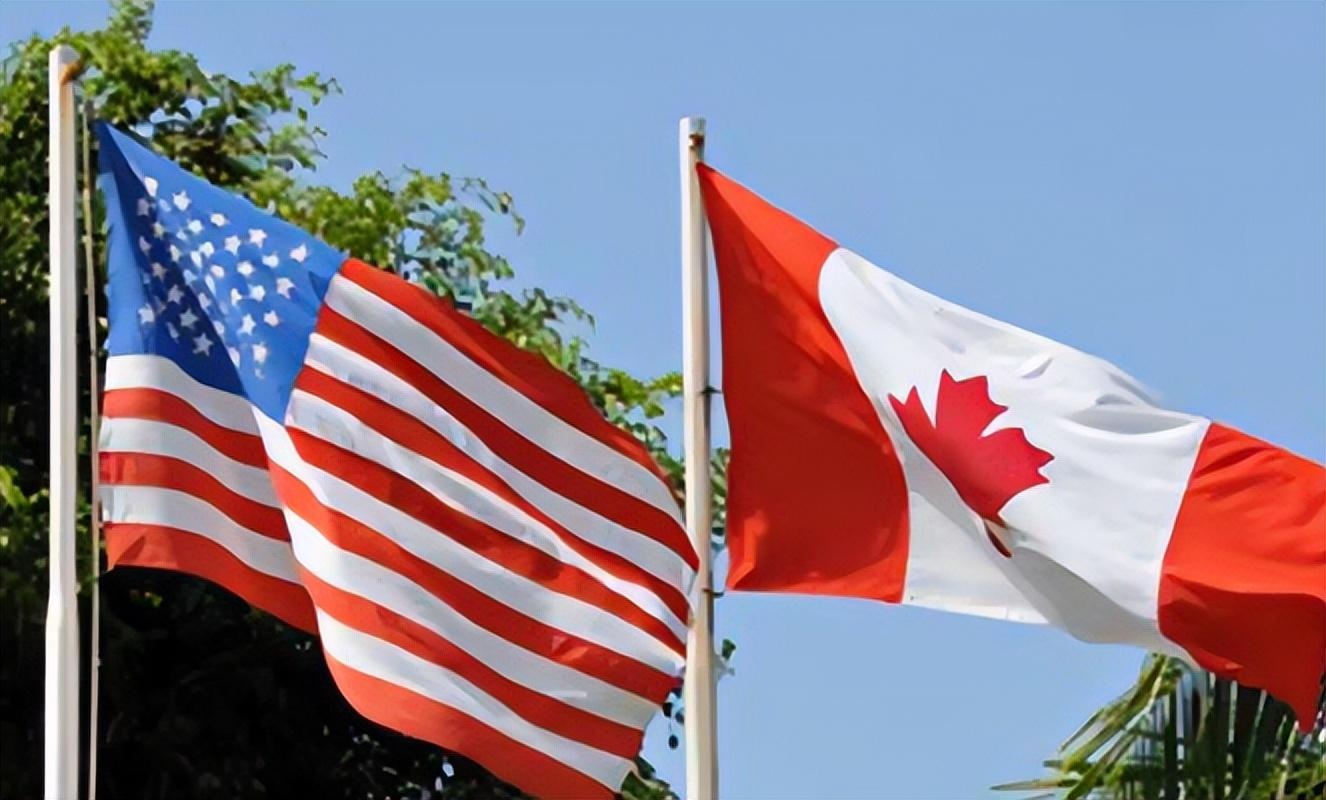
In the complex chess game of international politics and economy, the relationship between the United States and Canada has always been delicate, and in recent years, the exchange over the tariff issue has frequently caused waves. Trump's statement that "Canada can become the 51st state of the United States and Trudeau can become the governor" is not a joke, but contains multiple layers of profound meaning, and has thrown a shock bomb to the bilateral relations between the United States and Canada and the regional situation.
From the economic dimension analysis, tariff has always been the focus of contradiction between the United States and Canada. With its huge economic size, the United States has repeatedly wielded the big stick of tariffs, trying to reshape the North American trade pattern and tilt the trade balance to its own side. Canada's competitive industries such as dairy products, steel and aluminum products bear the brunt of the tariffs. Under the pressure of tariffs, Canadian export companies have suffered a sharp drop in orders and a surge in costs, and many factories are facing production cuts and even closures. Trump threw out this comment, in essence, is an alternative expression of economic bullying, suggesting that if Canada thoroughly submits to the US economic strategy and integrates into the US system, the tariff problem can be solved. U.S. markets would be open, supply chains would be seamless, and Canada would be able to circumvent trade barriers, seemingly mutually beneficial but at the cost of losing economic sovereignty.
At the geopolitical level, although the United States and Canada are Allies, they have their own independent political aspirations. Canada adheres to its diplomatic autonomy, speaks out in the international arena and participates in multilateral cooperation, and does not want to be completely coerced by the United States. But at a time when global influence is shrinking and domestic isolationism is on the rise, the US is eager to strengthen its "backyard" control. Trump's proposal to turn Canada into a state aims to uproot Canada's political independence, make its foreign and military policies the same as those of the United States, and become an absolute subordinate part of the United States' global layout. On matters such as NATO operations and sanctions against Russia, the United States can force Canada to cooperate without hindrance and expand its own camp's strength.
As trade negotiation tactics go, this is a classic case of maximum pressure. At the negotiating table, Trump is well versed in the way of "not surprisingly dead". The annexation rhetoric disrupted Trudeau and the Canadian negotiating team, forcing them to make hasty statements and concessions on key issues such as the extent of tariff cuts and market access conditions. The Canadian government, in order to maintain its national image and industrial foundation, will inevitably refute it, but the psychological line of defense has been impacted, and subsequent negotiations will inevitably be hesitant and passive.
The Trudeau government faces a serious test. On the one hand, a tough response to Trump is the inevitable way to defend national dignity and sovereignty. If it is silent, it will be regarded as weakness by the people, and domestic nationalist sentiment will rise, and the political foundation will be shaken. On the other hand, the deep economic dependence of the United States and Canada has made the Canadian side wary. Cutting off trade with the United States is close to "breaking the arm", and pillar industries such as automobile manufacturing and energy exports will be paralyzed. Trudeau needs to strike a difficult balance between diplomatic protests and practical cooperation, navigate the international public opinion field, win moral support from more countries, and explore diversified trade ways to reduce dependence on the United States.
The international reaction to Trump's comments was mixed. European Allies are wary of US regional integration ambitions that extend beyond North America and threaten their own sovereignty. Seeing the extreme form of US trade unilateralism, emerging economies have stepped up the promotion and improvement of regional free trade agreements to prevent the US long-arm jurisdiction. The United Nations and other international organizations have called for respect for national sovereignty and territorial integrity, giving Canada a diplomatic buffer space and maintaining the authority of international law.
In the long run, Trump's bombast may not come true, but it has already marked an indelible rift in US-Canada relations. Even if the United States changes leadership in the future, it will take a long time to repair bilateral trust, and trade and diplomatic suspicions will follow. Canada is bound to speed up its economic transformation and expand into Asian and European markets. For its part, the United States should reflect on the drawbacks of hegemonic trade practices and return to the tradition of equal dialogue with its neighbors. Otherwise, the stability and prosperity of the North American continent will continue to be clouded, and the international economic order will be destabilized by such unilateral and hegemonic practices.

According to Bloomberg, a recent in-depth interview with Michael Dehal, senior portfolio manager at Raymond James' Dehal Investment Partnership, was released, focusing on the economic development prospects and potential risks of Canada and the United States in 2026.
According to Bloomberg, a recent in-depth interview with Mi…
TikTok Shop, the global e-commerce platform under ByteDance…
As a severe flu outbreak sweeps across the United States, w…
Recently, US Treasury Secretary Mnuchin publicly stated tha…
At the dawn of 2026, the United States launched a military …
From the stiff step when it first debuted in 2022 to demons…